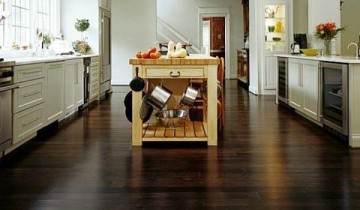“Self-Healing Hard Flooring?-Maybe!”
Avoiding Hardwood Flooring Damage
Protecting your hardware floors is something homeowners and businesses can do to avoid expensive replacement and repairs of hardware flooring. Bayer and other chemical companies developed hardwood floor finishes that made with “self healing” polymers. They are used to seal and protect hardwood flooring and furniture.
The coatings have “shape memory” that causes the polymers to return to their original shape filling in abrasions to the flooring. New floor defects disappear shortly after occurring.
Floors That Are Inherently Self-healing
Some floors are naturally able to self-heal. Some are man-made material like synthetic rubber and some are natural such as cork.
Rubber Tile Flooring
Rubber is a great flooring choice in areas of high traffic or where things are likely to drop on the floor. Rubber is very durable and is known for its flexibility and resilience.
At one time, rubber flooring was only used for commercial flooring. Today these hard-wearing rubber tiles come in many colors and take on the look of other flooring materials such as wood. When used in areas such as the kitchen or bathrooms and high traffic areas, use ribbed tiles to prevent slipping.
Cork Flooring
Cork is a durable yet elegant flooring material. In fact, renowned architect Frank Lloyd Wright used cork flooring in two of his most famous architectural masterpieces: Falling Water and Walter Gropius’ residence. The self-healing properties of cork comes from its spongy texture caused by its 200 million air cells per cubic inch. This translates to a floor that is spongy (which is very comfortable when walking or standing) and that has a lot of give so when something lands on it, the floor absorbs the shock without damage. Small abrasions and scratches fill in from the spongy texture.
To learn more about durable flooring, call Chicagoland’s premier “go to” flooring experts, Trevino Flooring. Our number is (847) 808-7100.

